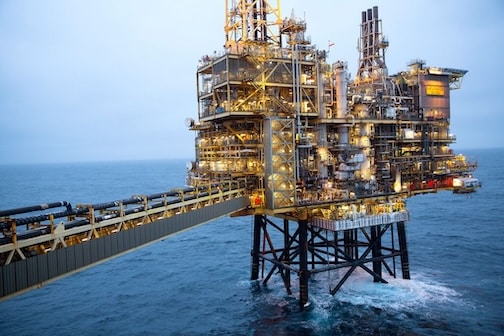The global PR giant Edelman has won the bidding war for Shell’s worldwide public relations account — the latest extension of the two companies’ decades-long relationship.
As first reported on Monday by Provoke Media, the account is “estimated in the eight-figure range”, placing Shell among Edelman’s most lucrative clients.
Edelman, which states publicly that it “believes climate change is the biggest crisis we face as a society,” has been described by the Climate Investigations Center as “the dominant PR firm for trade associations that promote an anti-environmental agenda.” Campaigners charge that this kind of spin has helped insulate Shell and corporations like it from pressure to slash carbon pollution, further delaying the global shift from fossil fuels to renewable energy.
In March, according to its latest “energy transition strategy”, Shell abandoned a key climate target for 2035 and weakened another goal for 2030.
Mark Van Baal of Follow This, a group organizing shareholders of oil and gas companies to push for internal change, told DeSmog, “If you want to continue selling a harmful product for as long as possible, you need one of the best PR firms. Edelman’s experience in helping Big Tobacco do the same is very valuable for Shell”.
“If Shell would put their brains and billions behind clean energy, the company would save millions in PR expenses”, Van Baal said.
Other ad and PR agencies that have worked for Shell include IPG’s Weber Shandwick and WPP’s Hill+Knowlton Strategies, which has also worked for ExxonMobil, Chevron and Saudi Aramco.
Hill+Knowlton was also in charge of the Egyptian government’s PR strategy for the 2022 United Nations climate conference in Sharm El-Sheikh, prompting over 400 scientists to sign an open letter calling on the agency to cut its ties with fossil fuel clients.
In 2023, the Paris-based holding company Havas, whose CEO Yannick Bolloré has been arguably the most outspoken industry executive on climate change, won a major global advertising contract with Shell. In response, activists from the climate group Extinction Rebellion staged a die-in at its London headquarters; and B Lab, the organization that manages B Corp certifications — which affirm that a company prioritizes environmental and social impacts in its operations — is investigating whether several Havas subsidiaries are still eligible for that status.
Accounting for its dwindling climate commitments is not the only public relations challenge Shell faces. In January, The Guardian reported that a rebellion of some major shareholders — led by investors aligned with Follow This — continues to brew.
Twenty-seven large investors — including the UK’s largest pension scheme, the National Employment Savings Trust — have backed a resolution calling on Shell to align its medium-term targets for reducing carbon emissions with the targets set in the Paris Agreement.
Under that treaty, nations agreed to limit overall global temperature increase to 1.5 degrees Celsius (3.6 degrees Fahrenheit), and corporations were urged to set “science-based targets” to slash their carbon emissions. However, a recent survey by The Guardian found that “ hundreds of the world’s leading climate scientists expect global temperatures to rise to at least 2.5 degrees Celsius (4.5 degrees Fahrenheit) above pre-industrial levels this century…causing catastrophic consequences for humanity and the planet”.
Last year, Shell’s shareholders voted down a similar resolution.
Advertising and PR’s ties with the fossil fuel industry run deep. All six of the world’s largest ad agency holding companies – WPP, IPG, Omnicom, Publicis Groupe, Havas, and Dentsu – have publicly committed to climate action while still maintaining contracts to create ads or provide PR for some of the world’s biggest polluters. Last year’s “F-List”, a report by campaign group Clean Creatives that tracks the industry’s oil and gas clients, found a record 500 contracts active between 2022-2023.
Since 2022, when 450 climate scientists penned an open letter citing advertising as one of the biggest barriers to government action on climate change, litigation over misleading or false climate claims by oil and gas companies has surged worldwide.
Jamie Henn, director of the campaign group Fossil Free Media, told DeSmog in 2023 that “this growing wave of lawsuits poses real risks to PR and advertising agencies who are working with fossil fuel companies to mislead the public. We’ve already seen consulting firms like McKinsey pulled into climate lawsuits, it’s only a matter of time before firms like Edelman could find themselves in the same position.”
A recent DeSmog investigation found that dozens of ad and PR industry directors have ties to oil and gas or related companies.
In April, a United States Congress investigation of major oil and gas trade groups and corporations — including Shell — released new evidence that the industry knowingly deceived the public for decades about the link between burning fossil fuels and climate change, and then pivoted to pouring millions of dollars into marketing false climate solutions.
Edelman did not immediately respond to DeSmog’s request for comment. A Shell spokesperson confirmed that “following a competitive tender process, Edelman has been reappointed as global provider of public relations services to Shell”.
Subscribe to our newsletter
Stay up to date with DeSmog news and alerts







